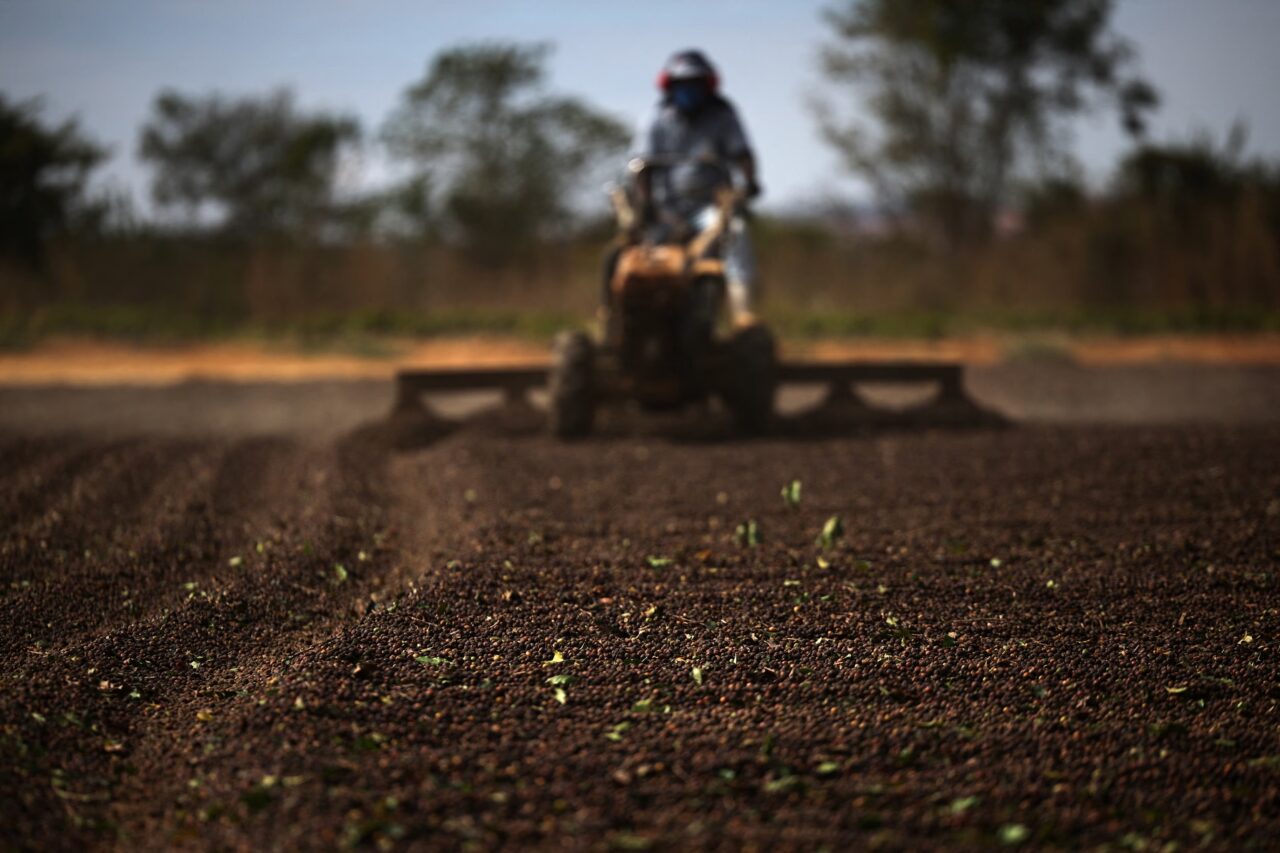دبي، 3 سبتمبر 2025 (قهوة ورلد) – في الوقت الذي تتراجع فيه أسعار القهوة في الأسواق العالمية بفعل الأمطار الغزيرة في البرازيل واقتراب موسم الحصاد من نهايته، يواجه المستهلكون في أكبر دولة منتجة ومصدّرة للقهوة واقعًا مختلفًا يتمثل في ارتفاع أسعار القهوة المطحونة والفورية داخل السوق المحلي.
انخفضت عقود قهوة أرابيكا لشهر ديسمبر بنسبة 3.44%، فيما تراجعت عقود روبوستا لشهر نوفمبر بنسبة 3.28% لتسجل أدنى مستوى لها في أسبوع. وأفادت شركة “سومار ميتورولوجيا” أن ولاية ميناس جيرايس، أكبر منطقة لإنتاج قهوة الأرابيكا في البرازيل، شهدت هطول 10.1 ملم من الأمطار خلال الأسبوع المنتهي في 30 أغسطس، أي ما يعادل 163% من المعدل التاريخي.
إلى جانب ذلك، أعلنت تعاونية “كوكسوبي”، أكبر مُصدّر للقهوة في البرازيل، أن الحصاد اكتمل بنسبة 94.9% حتى 29 أغسطس. كما أكدت مؤسسة “سافراس وميركادو” أن حصاد موسم 2025/26 وصل إلى 99% بحلول 20 أغسطس، مع إنهاء كامل لمحصول الروبوستا و98% من محصول الأرابيكا.
في المقابل، رفعت شركتا 3 كوراسونيس وميليتا أسعار منتجاتهما اعتبارًا من الأول من سبتمبر. فقد رفعت 3 كوراسونيس أسعار القهوة المحمصة والمطحونة بنسبة 10% والقهوة الفورية بنسبة 7%، بينما أعلنت ميليتا عن زيادة قدرها 15%. هذه الخطوة جاءت بعد سلسلة من الارتفاعات السابقة، حيث رفعت 3 كوراسونيس الأسعار في يناير بنسبة 11% وفي مارس بنسبة 14.3%، فيما رفعت ميليتا أسعارها بنسبة 25% في ديسمبر الماضي.
تكشف هذه التطورات عن مفارقة لافتة في سوق القهوة البرازيلية: بينما تنخفض الأسعار في الأسواق العالمية بفعل الطقس الجيد والحصاد الوفير، يشهد المستهلك المحلي زيادات متتالية نتيجة تقلبات المناخ، الرسوم الجمركية الأمريكية المفروضة بنسبة 50% على الواردات، وارتفاع تكاليف البن الخام.
فقد ارتفعت أسعار حبوب الأرابيكا العالمية بأكثر من 20% منذ بداية العام بعد قفزة بلغت 70% في العام الماضي، وسط تأثيرات سلبية للأحوال الجوية. ومع فرض الرسوم الأمريكية، لجأ المحامص في الولايات المتحدة إلى استنزاف المخزونات، ما زاد من تقلبات السوق.
أشارت بيانات الجمعية البرازيلية لصناعة القهوة (ABIC) إلى أن أسعار التجزئة شهدت انخفاضًا مؤقتًا في أغسطس بعد تراجع العقود الآجلة من مستوياتها القياسية، إلا أن الاتجاه انعكس سريعًا مع دخول الرسوم الجمركية حيّز التنفيذ. وتواجه الشركات الكبرى اليوم تحديًا في موازنة تكاليفها مع تراجع القوة الشرائية، حيث يلجأ المستهلكون إلى البحث عن بدائل أرخص أو التحول إلى علامات تجارية من المتاجر الكبرى.
ورغم أن وزارة الزراعة الأمريكية توقعت ارتفاع الإنتاج العالمي بنسبة 2.5% في موسم 2025/26 ليصل إلى مستوى قياسي يبلغ 178.7 مليون كيس، فإن شركة “فولكافيه” حذرت من عجز عالمي متزايد في قهوة الأرابيكا يبلغ 8.5 مليون كيس، وهو العجز الخامس على التوالي منذ خمس سنوات. هذا التناقض بين انخفاض الأسعار العالمية وارتفاع الأسعار المحلية في البرازيل يرسم صورة معقدة لسوق القهوة في المرحلة المقبلة.
